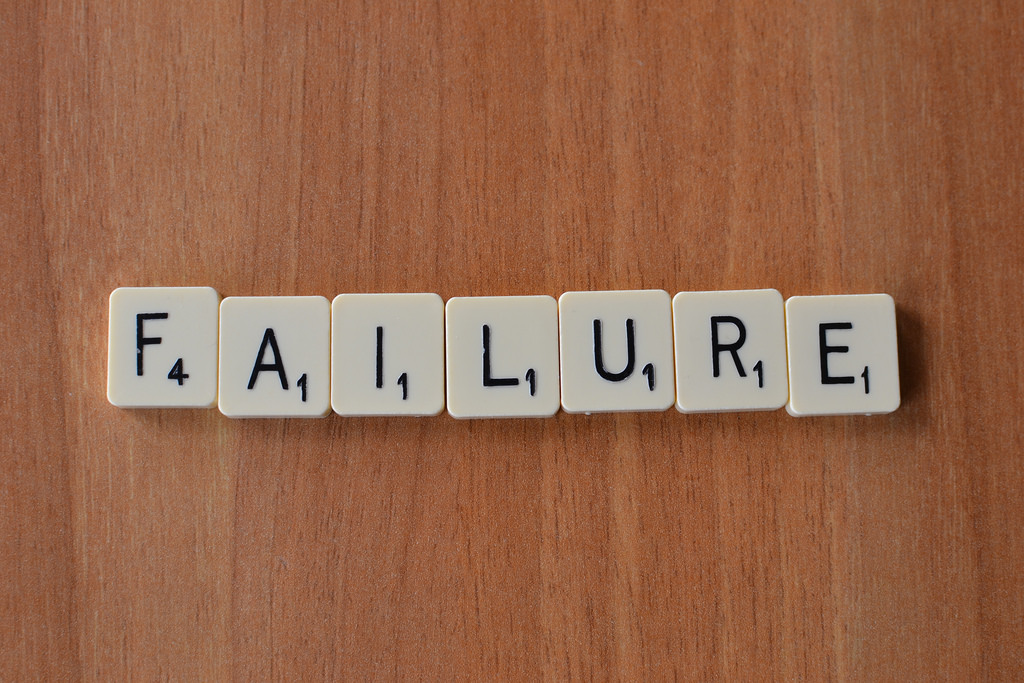Learning From Failure
Intro
Hi, and welcome to the first ever Pete Holman 1 Performance Blog. This blog isn’t just about fitness and coaching, I am going to share with you my experience and passion in leadership, business acuity and character. I couldn’t think of a better way to start this blog series than to talk about a subject that absolutely terrifies most people and that is failure. What is failure, how does one respond and is it really a bad thing? Well, let’s get after it and take a closer look at failure and did I mention this is my first EVER blog!
What is failure?
The Merriam Webster dictionary has many definitions of failure including: 1) omission of occurrence or performance 2) a state of ability to perform a normal function 3) an abrupt cessation of normal function, etc. However, I am a big believer in short, simple and easily digestible information, so the definition I am going with was fifth or sixth down on the list which defines failure as “a falling short.” We have all seen some of the best golfers in the world go to make the winning put on the 18th green and what happens: they fall a little short. Does that mean they are no longer great golfers, does it mean they didn’t put forth a proper effort, does it push them into retirement or towards another career? NO, it simply means they fell a little short on that specific put. My first commercial strength training product was called the Functional Training Rack; a storage solution that helped organize gear such as medicine balls, elastic cords, tilt boards and foam rollers. I launched the product in 2007; that summer China proceeded to buy all the steel in the world as they prepared for the 2008 Olympics. Steel prices doubled and coupled with massive problems that I incurred trying to kit and fulfill product, I knew the project was nearing its end. I sold the remainder of my inventory to Perform Better and walked away with my tail between my legs. Although, I lost thousands of dollars and presumably failed, I gained a tremendous amount of insight on how to design, develop, manufacture, market and fulfill fitness equipment. I took these failures into my next product, the RIPCORE-FX now known as the TRX Rip Trainer, which changed the trajectory of my entire career.
How does one respond to failure?
We all know at some point in our career, our relationships or our competitive endeavors we are all going to fail. The real question is how does one respond. Many of you know that I was on the US National TaeKwon-Do team and was even the team captain at the 1997 World Championships in St Petersburg Russia. What most people don’t know is that after my TaeKwon-Do career, I got into full contact kick-boxing. Would you believe that I lost my first fight? Instead of questioning my skills and throwing in the towel, I trained harder and smarter and adapted to full contact fighting winning my next 19 fights. You see, it’s not the failing that is a problem, it’s how we respond to failure that develops one’s character. In fact, I will go as far to say that if one hasn’t had numerous failures, he or she is less well rounded and often times inept in responding to difficult situations. Let me take a brief moment to remind you of some of my favorite failure to success stories:
- When asked about the many thousands of failures he had when trying to create the light-bulb, Thomas Edison said, “I have not failed. I’ve just found 10,000 ways that won’t work.”
- When cut from his high school basketball team, Michael Jordan was dejected and even contemplated quitting Basketball forever. He went on to win 6 NBA championships and is arguably the greatest player of all time.
- In 1858 Abraham Lincoln lost a senate election seat in Illinois, two years later he was elected the 16th president of the United States and went on to be one of the most instrumental figures in United States history.
As one can see, even the greats fail, it is how they respond to failure that galvanizes character.
What can one learn from failure?
What can we learn from failure, basically everything! Not only does failure provide insight on how to modify our behavioral patterns, it forges our spirit. I recently was selected by IDEA Fit as a finalist for the 2019 Personal Trainer of the Year award. This is a highly coveted award and is presented at the opening ceremonies of the largest trainer’s conference in the world. In the words of “Panic at the disco” I had high-high hopes but in the end fell short. I am not going to lie, initially it stung a little bit but as soon as I recognized that I can apply again next year, my mind set changed. I have learned that in life there is no triumph without tragedy, a set-back is just a set up for a come-back and without a test, there can be no testimony. The key is to embrace your failures as learnable experiences so you can come back on top!
Conclusion
When I was training on the US National TaeKwon-Do team, we would repeat the tenants of TKD before starting each practice.
- Courtesy
- Integrity
- Perseverance
- Self-Control
- Indomitable Spirit
I agreed with and lived by all the tenants, but the last one was so special to me that I even had it tattoed on my arm. Indomitable spirit simply means “a spirit that cannot be broken.” Every obstacle I have encountered in my life I have not seen as a road block but as an opportunity to learn, to change course and to grow. I am truly grateful for all my failures and know that if I can continue to push through them, success lies on the other side.
Thanks for joining and until next time, Get After It Everybody!


